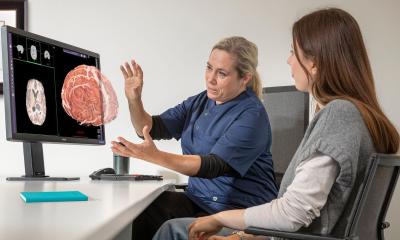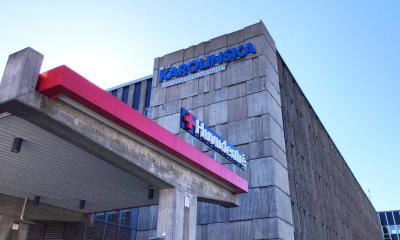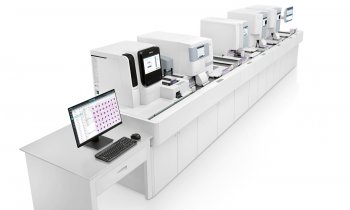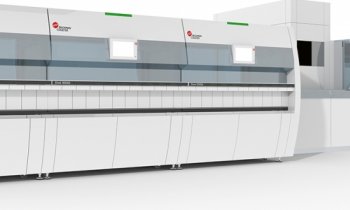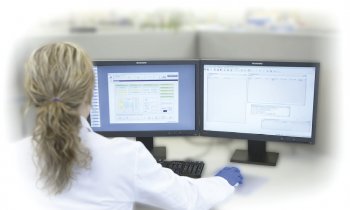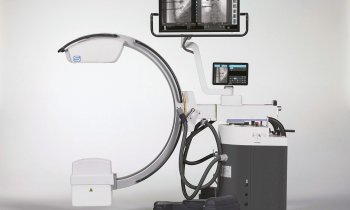Simplified documentation results in improved therapy
A large proportion of the patients treated at the Asklepios Schlossberg Clinic are intensive care patients. To track the medical treatment and nursing support which is carried out, an immense amount of documentation is produced.

Now, this procedure can be simplified thanks to the introduction of the electronic patient medical record and 30 Penta medical PCs, which enable the collection of all the relevant data directly at the patients’ bedsides. By employing the new time-saving method of documentation the medical staff can invest additional time in the patients‘ therapy.
Intensive care is a labor-intensive sector. Every day, patients receive a wide range of medical treatments and nursing services. To document and bill this work correctly, extremely detailed, gap-free recording is required. This in turn means a heavy workload for the medical and administrative staff. Neurological early rehabilitation clinics, such as the Asklepios Schlossberg Clinic, are challenged to deal with this problem, as the more intensive the treatment is, the more extensive the documentation becomes
Unified data
This situation prompted the Asklepios Schlossberg Clinic to introduce EMR (Electronic Medical Record), a unified electronic patient file system and in doing so optimize the documentation system. At the outset, the situation was as follows: Each single department carried out its own documentation – manually. Compiling all the important information regarding treatment of the patients and corresponding billing was a major task which was also not error-free. In the new EPA however, all the patient’s information, like vital parameters, artificial respiration times, medication, examinations and treatment carried out as well as visiting notes – are stored electronically and made available throughout the hospital. Medical staff or employees from administration can access the data from any PC in the hospital.
Huge time savings
By introducing the new electronic documentation at the Asklepios Schlossberg Clinic a number of various positive ’side-effects‘ emerged: Each member of staff saves around half an hour per day, which he or she can invest more usefully in taking care of the patients; that serves to further improve intensive care. What’s more, hospital administration staff profits considerably too as, in the meantime, billing of all treatments and services with the medical services of the health insurance companies now has an error rate of 0% at the Asklepios Schlossberg Clinic. And where the administration staff previously needed around an hour to process each individual application – now they can carry out around 40 a day.
ICU bedside PC for increased efficiency
This efficiency increase was, however, not only achieved by the unified, electronic data storage. Data collection had to be optimized too. This meant that data collection should take place where it actually occurs, i.e. at the patient’s bedside. Medical PCs which are used as PDMS (Patient Data Management Systems) are particularly suited to be used as bedside PCs in intensive care. Staff can input data directly into the EPAs, vital data can be automatically read and stored from the connected medical devices.
The project team at the Asklepios Schlossberg Clinic identified Penta’s Medical–i7 PC as being an ideal PDMS for use as an intensive bedside PC. Penta is an experienced manufacturer of completely sealed computer systems for deployment in operating theaters, intensive care departments, laboratories and clean rooms.
“Asklepios’ sister clinic, which already had gained some very positive experience with the Penta medical PCs in their clean room environment, recommended Penta. We ordered some Penta test systems and carried out extensive testing on them”, explains Marius Appel, the project manager who played a significant role in the introduction of the EPA system.
Penta Medical-i7: fastest system available
And - across the board - the test results were positive. The Medical-i7 proved to be the fastest system available thanks to its high performance Intel Core i7 multi-core processor and up to 8GB of RAM. And this speed is crucial as due to the lengthy stays of some patients a great deal of data accumulates in the patients’ files. Thanks to the powerful hardware which the Penta medical PCs feature, now all the data in the patient’s file can be accessed without delay. “Watching the infamous ‘egg time’ on the screen and waiting for data to load really should never occur during the medical staff’s daily business. That would give cause to judge the electronic documentation system negatively – and this is something we, of course, want to avoid.” Appel emphasizes.
Very user-friendly
A further reason why the new Penta medical PCs were seamlessly accepted into the clinic’s daily business, was the high level of user-friendliness. The readability of the 21.5 inch size display in 16:9 format with extremely clear full-HD resolution was a further bonus. The operator has an overview of all the relevant data at a glance without having to scroll through menu lists.
Hygienic system design
Besides the ease of use, an additional important criterion plays a major role when choosing a medical PC: the design of the system in terms of hygiene. The reason for this is that in the ICU many patients suffer from weakened immune systems. The highest possible standard of hygiene has to be kept. “There should be no areas on a medical PC which collect dirt and it should be possible to clean them especially thoroughly, they should even tolerate aggressive disinfectants being used. The fully sealed, robust metal case of the Penta medical PC fulfills exactly these requirements”, comments Marius Appel.
Fit for the future
Seen from a current perspective, what with the high performance, the ease of use and the hygienic characteristics all the relevant requirements were fulfilled. However, the project team took a forward-looking approach and asked themselves these questions: Which applications might perhaps be introduced in some years’ time? And are medical PCs capable of integrating these? ”Medical PCs should be easily upgradeable at a later date, for example, to accommodate future applications with RFID or barcode – and not have to be taken out of service after just a few years“, states Philipp Daum, Manager of the IT department at the Schlossberg Clinic. The Penta Medical-i7 is extremely future-proof owing to its wide range of interfaces and modular system design, even RFID and barcode readers can be integrated.
Convincing in practical use
After the decision was made for the Penta Medical-i7 PC and the PDMS software QCare from Health Information Management, the project team was able to introduce the new EPA system within a space of only 4 months. “Integrating the medical PCs went extremely smoothly and our experience with them has been nothing but positive, “ Marius Appel concludes. And the clinic management is happy too: Thanks to the high increase in efficiency, the investment for the EPA system pays itself off in just a few years.
17.09.2013



